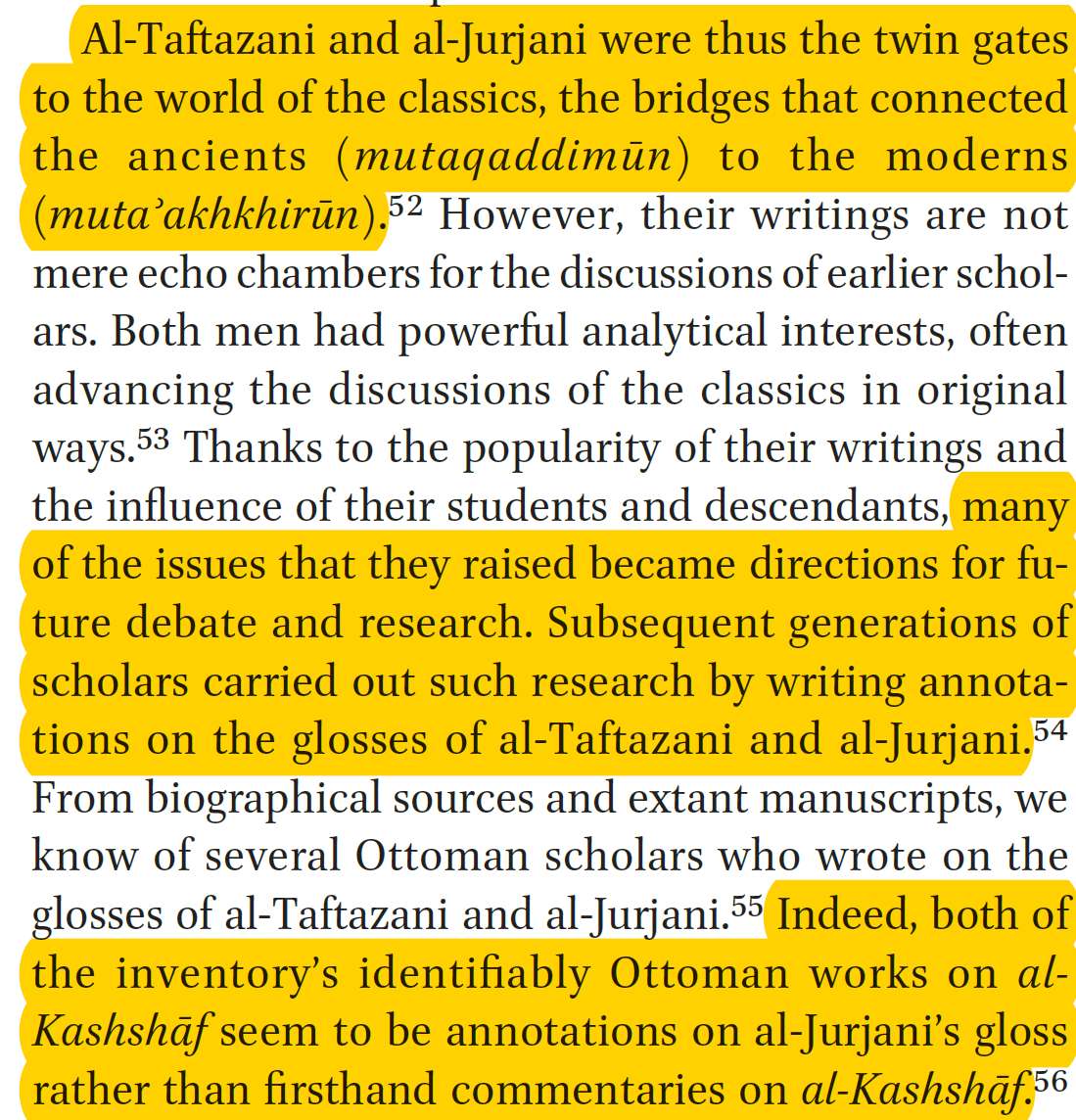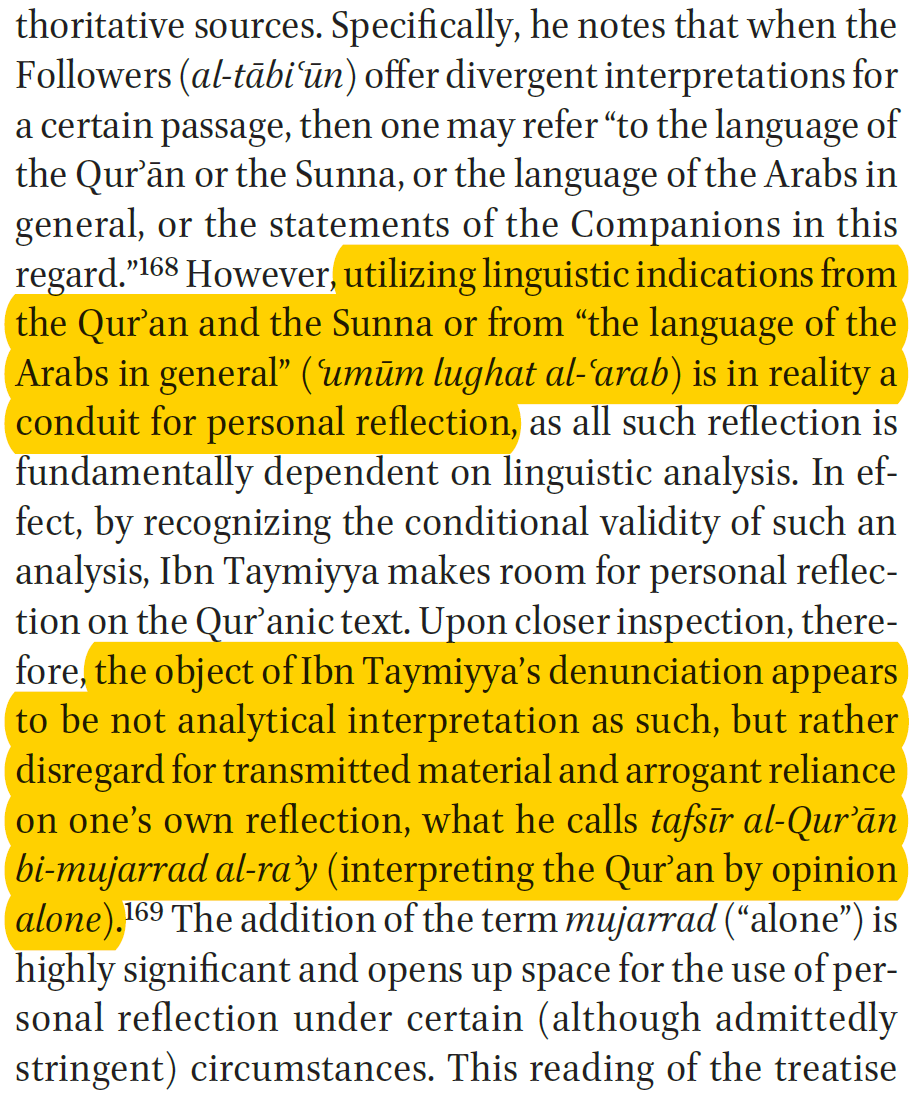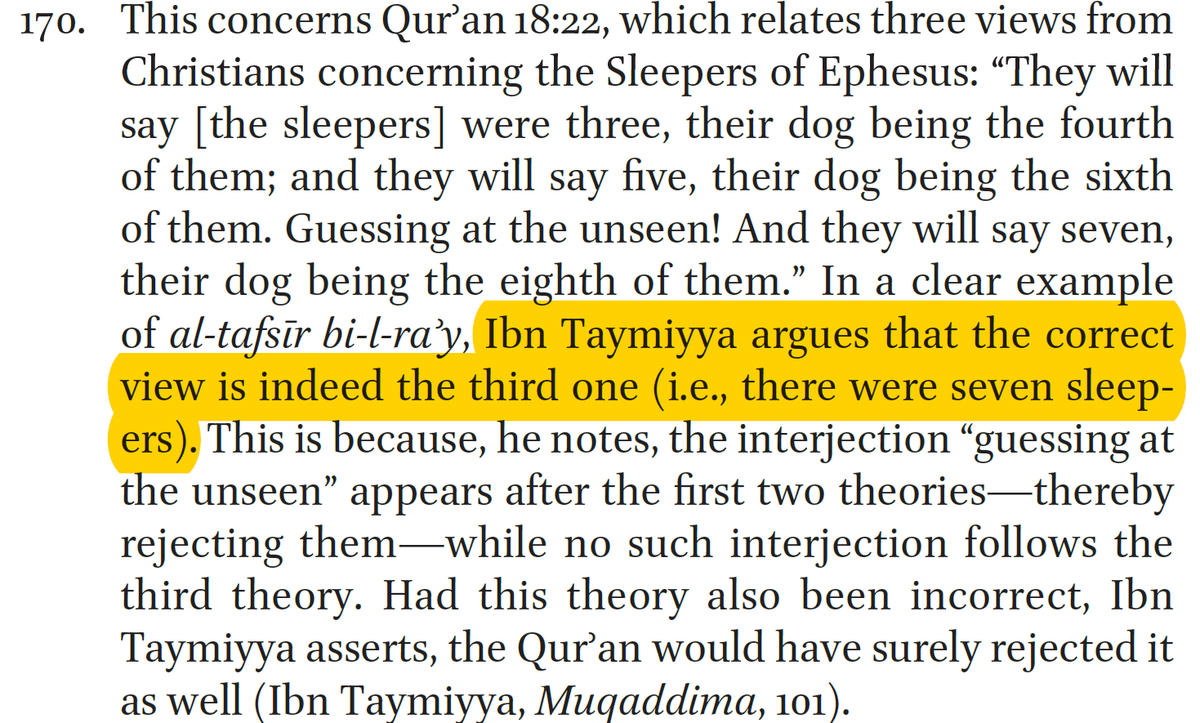The list of tafsīr works has 2 halves. The 1st half (86 manuscripts) begins by copies of Fakhr al-Dīn al-Rāzī's Grand Commentary (al-Tafsir al-Kabir) & is then dedicated to the Kashshāf of al-Zamakhsharī, Anwār al-Tanzīl of al-Bayḍāwī, & glosses on these works.
First, it provides further evidence for the absolute centrality of glosses, annotations, and supercommentaries (not to mention topical treatises) to pre-modern Muslim exegesis. We need to take these works seriously.
































